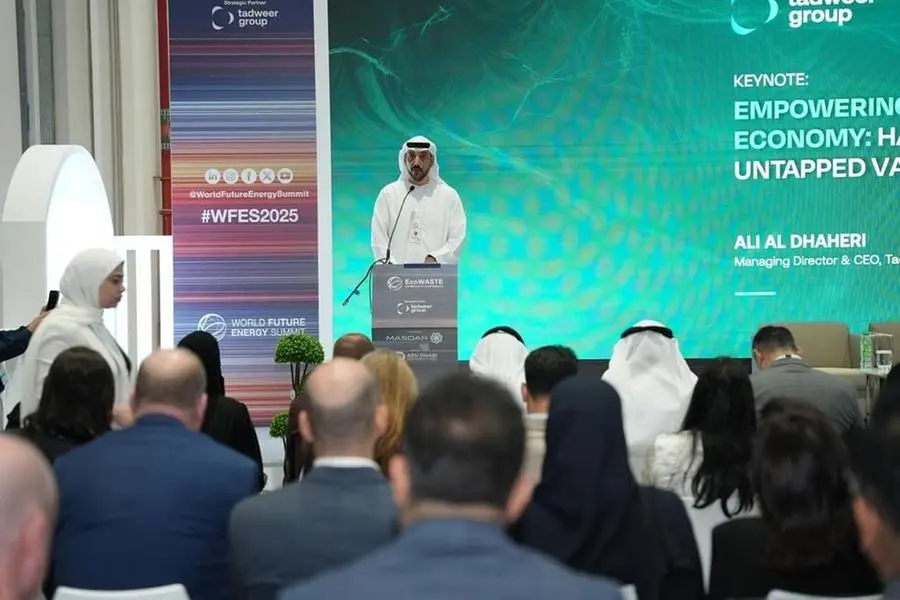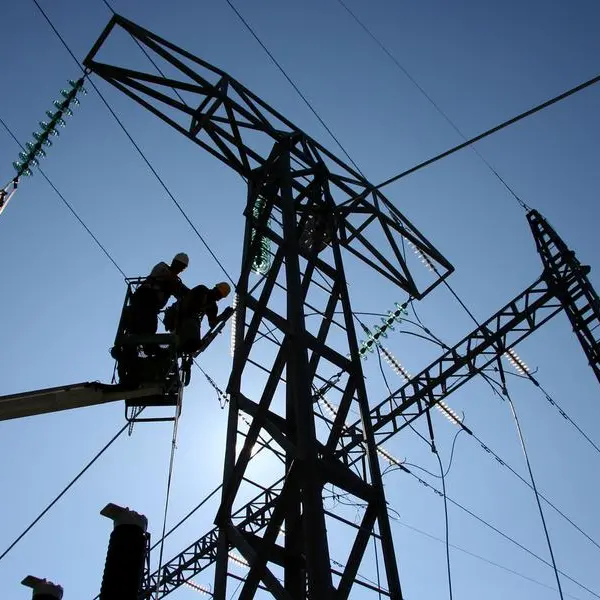PHOTO
Tadweer Group has announced the creation of a decarbonisation pathway with a target of reducing emissions across its business operations by 40% by 2035.
This announcement was made during the 11th EcoWASTE Exhibition and Conference, a groundbreaking platform for the MENA region’s recycling, waste management, and waste-to-plus industries, where Tadweer Group is a Strategic Partner and Co-Host.
The pathway was created in line with Tadweer Groups ambitions to reduce greenhouse gas emissions (GHG) produced as a result of the global waste sector (3 to 5%), particularly methane, which is released from landfills.
The pathway also aligns with the UAE's third Nationally Determined Contribution (NDC), a benchmark that the nation uses to reduce its greenhouse gas emissions under the Paris Agreement, reinforcing the organisation’s support for the global sustainability agenda.
Ali Al Dhaheri, Managing Director and CEO, Tadweer Group, commented, “At Tadweer Group, sustainability is at the heart of our mandate. In line with this commitment, we are proud to announce the development of our decarbonisation pathway. This will pave the way for our transition to a low-carbon business. By reducing emissions from waste, we are contributing to addressing climate change challenges and meeting the UAE’s net zero target. Decarbonising the waste sector in Abu Dhabi will also help achieve international climate objectives and net zero commitments, showcasing our support for the UAE Climate Responsible Company Pledge. And by fostering a deeper understanding of how we can reduce our emissions, we are delivering on our responsibility to helping create a more sustainable world.”
The pathway focuses on Tadweer Group’s projects that divert waste from landfill and convert it into valuable resources, such as Abu Dhabi’s first greenfield Material Recovery Facility and waste-to-energy plants. In addition, other advanced waste-to-resource technologies included in the pathway include waste-to-waste-to-sustainable aviation Fuel (SAF) and biofuel. This pathway is also a measurable climate transition plan to divert waste from landfill, in line with the organisation’s ambition, thereby reducing GHG emissions. In line with its dedication to a net zero future, the pathway also factors in the progress of the Waste to Zero initiative for global waste decarbonisation. Finally, this will also contribute to enhancing air quality and improving public health, providing opportunities for green jobs, new revenue streams, and leadership in low-carbon innovation.





















